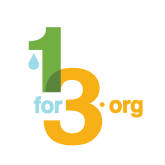
Expanding Access to Fresh Produce
Snapshot
Three parameters guide our work in food. The first is developing growing methods that thrive in low water, densely populated environments. The second is empowering local community members to lead the day-to-day tasks of running food production along with trained staff. The third is to take advantage of the unique local environment.
Expanding our food program means that we are turning a problem into an asset. The “problem” of refugee camps is that they are dense, urban, and lack growing space. We are using these realities as assets for food production, community building, and individual health. Through our experience we know that hydroponics work perfectly in these locations and, when linked to health programs, contribute to healing and community building.
3 years with a hydroponic rooftop garden spanning (4M H x 5M W x 10M L).
6 months with a second community hydroponic garden (1 more being constructed).
9 years of urban growing via rooftop/balcony gardens in 2 UN-refugee camps.
130, mostly women, trained in hydroponic agriculture.
30 youths involved with a weekly study of nutrition, composting, growing.
200 families served through garden produce output.
114 patients H4P benefiting from food training, harvesting, lifestyle coaching.
Over 50 micro-hydroponic growing towers distributed to trained gardeners.
Community Need
The reality of food insecurity in the lives of Palestinian refugees is profound. Often the poorest and most marginalized members of Palestinian society in the West Bank, food insecurity for refugees has real-world, life-time long consequences. Among these are poverty: nutritious food in the local market is not affordable; illness: poor quality food increases hypertension and diabetes and shortens lifespans; and precarity: most produce comes from Israel meaning that access to it is at the whim of military occupiers. Expanding local food production (i.e food sovereignty) in refugee camps in an environmentally conscious manner can address these and other issues.
In addition to tangible physical benefits our food work supports the psychological health of refugee communities. From our years of experience working in urban growing we know that communally produced food provides mental health well being to individuals and flexibility to society. It does this by expanding resiliency, gender equality, and trauma treatment, among others.
In 2014, 1for3 and the Lajee Center built the first rooftop garden in the UN-run Azza camp. This project was funded by the WSSS team from Tufts University, 1for3, the Pontifical Mission in Jerusalem, and Al-Awda organization. Now, ten-years on, the project has supported the construction of 45 rooftop and greenhouse gardens in both Aida and Azza camps that serve 300 people, as well as 3 community hydroponic gardens. These gardens are an integral part of 1for3’s efforts to promote food security and constructively support the Water - Food - Health - Education Nexus at play in the everyday lives of camp residents.


